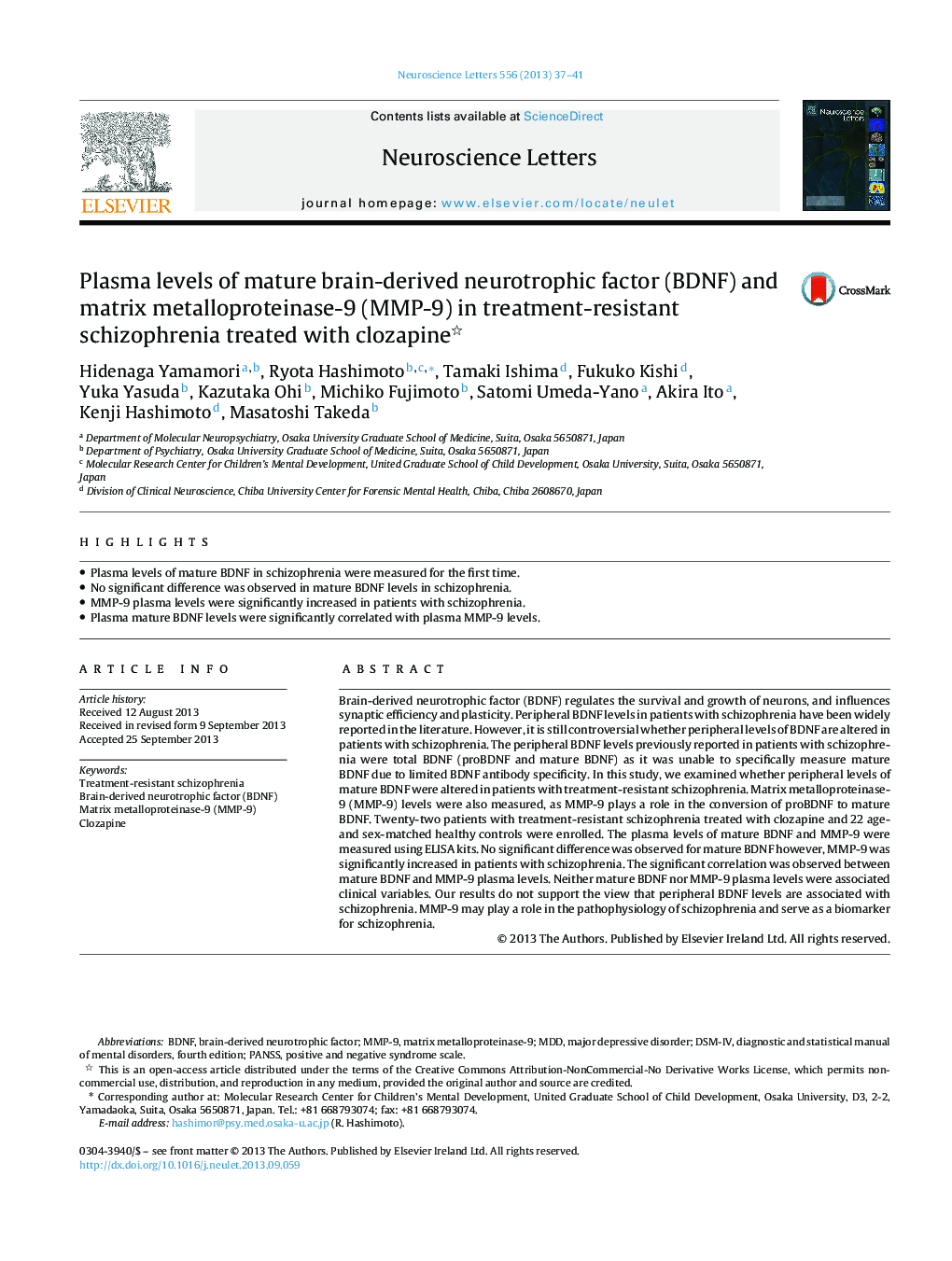| Article ID | Journal | Published Year | Pages | File Type |
|---|---|---|---|---|
| 6282527 | Neuroscience Letters | 2013 | 5 Pages |
Abstract
Brain-derived neurotrophic factor (BDNF) regulates the survival and growth of neurons, and influences synaptic efficiency and plasticity. Peripheral BDNF levels in patients with schizophrenia have been widely reported in the literature. However, it is still controversial whether peripheral levels of BDNF are altered in patients with schizophrenia. The peripheral BDNF levels previously reported in patients with schizophrenia were total BDNF (proBDNF and mature BDNF) as it was unable to specifically measure mature BDNF due to limited BDNF antibody specificity. In this study, we examined whether peripheral levels of mature BDNF were altered in patients with treatment-resistant schizophrenia. Matrix metalloproteinase-9 (MMP-9) levels were also measured, as MMP-9 plays a role in the conversion of proBDNF to mature BDNF. Twenty-two patients with treatment-resistant schizophrenia treated with clozapine and 22 age- and sex-matched healthy controls were enrolled. The plasma levels of mature BDNF and MMP-9 were measured using ELISA kits. No significant difference was observed for mature BDNF however, MMP-9 was significantly increased in patients with schizophrenia. The significant correlation was observed between mature BDNF and MMP-9 plasma levels. Neither mature BDNF nor MMP-9 plasma levels were associated clinical variables. Our results do not support the view that peripheral BDNF levels are associated with schizophrenia. MMP-9 may play a role in the pathophysiology of schizophrenia and serve as a biomarker for schizophrenia.
Keywords
MMP-9MDDDSM-IVPANSSBDNFMajor depressive disorderTreatment-resistant schizophreniaDiagnostic and Statistical Manual of Mental Disorders, fourth editionBrain-derived neurotrophic factor (BDNF)Brain-derived neurotrophic factorMatrix metalloproteinase-9Matrix metalloproteinase-9 (MMP-9)positive and negative syndrome scaleclozapine
Related Topics
Life Sciences
Neuroscience
Neuroscience (General)
Authors
Hidenaga Yamamori, Ryota Hashimoto, Tamaki Ishima, Fukuko Kishi, Yuka Yasuda, Kazutaka Ohi, Michiko Fujimoto, Satomi Umeda-Yano, Akira Ito, Kenji Hashimoto, Masatoshi Takeda,
